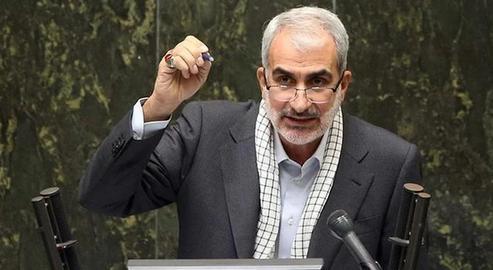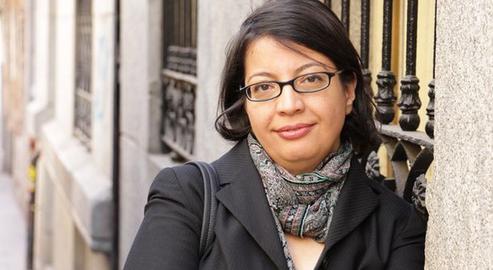Finally, Iran has a new education minister. Yousef Nouri, Ebrahim Raisi’s third candidate proposed for the job, managed to gain a vote of confidence from the Iranian parliament on Sunday, November 28.
The newly-anointed cabinet member laid out his manifesto to lawmakers ahead of the certification vote. In his speech, Nouri mentioned a special task ordained by Supreme Leader Ali Khamenei: to “train value-oriented students” and “train people for the revolutionary cause”. He also said his top priority was “following the example of Ghasem Soleimani”: the slain ex-commander of the IRGC’s Quds Force.
What did Nouri mean by “training value-oriented students”? Is this anything we haven’t seen before? Nejat Bahrami, a teacher and former deputy head of comms at the Ministry of Education, told IranWire the answer to the second question is a resounding no – and Nouri is likely to have even less luck in his mission than those that came before him.
***
"We must be able to train value-oriented students," declared Yousef Nouri, Iran's brand new education minister, at the vote of confidence session in the Iranian parliament on Sunday. "Until we can create the personification of the Islamic Revolution, the model set by Imam Khomeini, in our education system, all other educational policies and programs will be inconceivable. This model was shown to us by the Leader when he said: 'Dear Soleimani is an example of those educated in the school of Islam and Imam Khomeini’."
In his speech, Nouri added that he would seek to train up "believer" students who knew the values of peace, self-sacrifice and “defense of the oppressed” in order to achieve the “great goals” of the Islamic Revolution: slogans, in other words, directly lifted from the speeches of Iran’s current Supreme Leader. In a conservative-dominated parliament like this one, the buzzwords made it easy for Nouri to gain the votes he needed to join Raisi’s hardline cabinet.
Like others outside Iran, Nejat Bahrami, a teacher with a PhD in educational sciences and former deputy director of public relations of the Ministry of Education, listened to the speech with a mild sense of déjà vu. In an interview with IranWire, he said that in his view Nouri’s efforts – identical in their stated nature those of previous ministers before him – are doomed to fail.
"The ideological, coercive teaching style of the Islamic Republic is not limited to this government,” he said. “It has run for the last four decades. All we can say now is the policy may be a little more intensive than before.”
The same principles underpinned state education even under the reformists, Bahrami said. “The Minister of Education in Mr. [Mohammad] Khatami’s government decided to put a stop to ‘educational assistants’ in Iranian schools. But less than a year later, under pressure from hardline factions, those ‘assistants’ – who exist to promote the ideology of the Islamic Republic – returned to classrooms.
“Over many years, the Islamic Republic has sought to promote its favorite intellectual, philosophical and religious structures in textbooks, in teacher training, in extracurricular activities and even at cultural ‘camps’. But so far, how successful has it been?”
Based on his own research, Bahrami said he believes “90 percent” of Iranian young people are left cold by the propaganda drives in schools. Widespread internet access, exposure to foreign TV shows and cartoons, and basic day-to-day interactions with their own families, he said, have encouraged new generations to think outside the box and “become acquainted with the true nature of the system”.
Bahrami added: “This is evidenced by walking around cities, by talking to children, by hearing about their interests, even by observing their choice of clothing. Unlike schools in developed countries like Scandinavia, which impart life skills such as how to live well, sports and vocational training, the Islamic Republic has tried to incorporate the same religious and political slogans written on the city walls into textbooks and school curricula. My 20 years’ teaching experience have shown me that such policies have not, and will not, result in anything but confusion, boredom and ultimately children's hatred of the school environment."
Nejat Bahrami held his post at the Ministry of Education during the tenure of Hassan Rouhani. He is the author of the book The Development and Market Against Populism and a prolific writer on education policy. From May 2020 he served a year’s sentence in Evin Prison on the ill-defined charges of “propaganda against the regime” and “disturbing the public mind”.
In Bahrami’s view, all policy matters aside, Yousef Nouri lacks the managerial capacity to run the Ministry of Education at all. “A minister who, his vote of confidence session – instead of presenting a program to resolve Iran’s educational problems, raise teachers' responsiveness, update the content of textbooks or retain graduate students – speaks of Ghasem Soleimani as a role model and of pure obedience to the Supreme Leader of the Islamic Republic, is more like an eulogist than a teacher.
“This military and religious indoctrination will only conceivably be effective in less privileged towns and villages that don’t have sufficient access to the internet. I believe this accounts for about 10 percent of the Iranian school-age population: children who, unfortunately, under the instruction of this government, will in future become soldiers and serants of the system, suppressing critical and informed citizens with weapons or court rulings."
The insistence on prioritizing ideology over practical education in Iran has come at a significant cost. Earlier this year, the IRGC-affiliated Tasnim News Agency noted that in 2019 both literacy and numeracy among school-age pupils in Iran was significantly behind that of their peers in 68 countries of the world, with one-third not fully literate and lacking the ability to carry out basic mathematical calculations.
Since then, the coronavirus pandemic has further hampered many pupils’ ability to learn and seen large numbers drop out of school altogether. Mostafa Eghlima, president of the Iranian Social Welfare Association, told IranWire last month that three to five million Iranian children are currently out of school, indicating up to a third are now deprived of even the state’s idea of an education.
Related coverage:
One Third of School Pupils are Illiterate and Lack Basic Maths
Masonic Conspiracies, Child Soldiers and Kalashnikovs in Iranian School Textbooks for 2020/21
Outrage After Iran Erases Girls from a Math Textbook Cover
MP Blames Child Marriage and Poverty for Spiralling School Dropout Rate in West Azerbaijan
Rouhani Dodges School Opening Ceremonies Amid E-learning Chaos
“Iran’s Education System has Been Turned into a Racket”
Education Ministry in New Drive to Promote "Chastity" in Schools
visit the accountability section
In this section of Iran Wire, you can contact the officials and launch your campaign for various problems

























comments